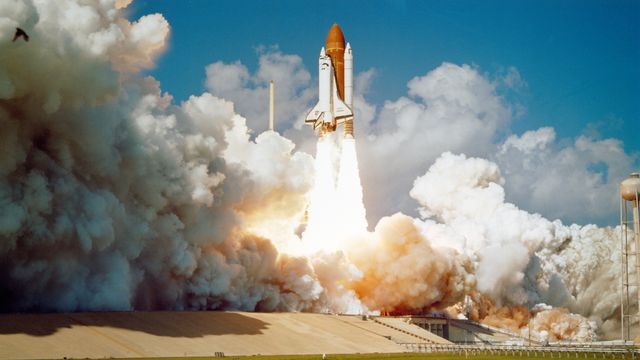Bacterial spores have proven resilient to the harsh conditions of suborbital spaceflight, according to a new study involving researchers from RMIT University. The results could help inform long-term strategies for supporting astronaut health on future missions to Mars and beyond.
The research is published in npj Microgravity.
Simulating spaceflight with a sounding rocket
The experiment tested whether Bacillus subtilis spores – a bacterium essential for human health – could survive exposure to rapid changes in gravitational force, including intense acceleration and deceleration, as well as a brief period of microgravity.
B. subtilis bacteria contribute towards support the immune system, gut health and blood circulation. While humans have been living on space stations for short stints since the 1970s, bacteria such as B. subtilis would be critical to sustaining human health over a period of decades on a future Mars colony, for example.
For this study, the research team launched the bacterial spores to the edge of space aboard a sounding rocket, as part of a collaboration with the Swedish Space Corporation.
During the flight, the payload experienced several stressors of spaceflight, including:
acceleration of up to 13 times the force of gravity (13 G)
more than 6 minutes of microgravity (weightlessness) after the engine cutoff at 260 km altitude
intense deceleration reaching 30 G during atmospheric re-entry
high-speed rotation at up to 220 revolutions per second
The bacteria were housed in a custom-designed 3D-printed holder developed jointly by RMIT and the Australian space technology company, ResearchSat. After retrieval, the team assessed the spores for growth potential and structural integrity.
The team found that the spores remained structurally intact and biologically viable after the flight, suggesting that at least some key members of the human microbiome may endure the journey between planets.
Implications for astronaut microbiomes
Although B. subtilis is well known for its durability compared to other bacteria, this study is among the first to assess microbial viability using actual flight data rather than simulated conditions. The findings offer a biological benchmark for evaluating how more sensitive microorganisms might respond to space travel.
Since microbes play a crucial role in maintaining immune system function, digestion and other physiological processes, understanding their resilience is important for sustaining human health during long-term missions.
“Microbes play essential roles in sustaining human health and environmental sustainability, so they’re an essential factor of any long-term space mission,” explained study co-author Distinguished Professor Elena Ivanova.
“Broader knowledge of microbial resilience in harsh environments could also open new possibilities for discovering life on other planets. It could guide the development of more effective life-detection missions, helping us to identify and study microbial life forms that could thrive in environments previously thought to be uninhabitable.”
Opportunities beyond space travel
The research may also have applications in fields unrelated to space exploration. Understanding microbial responses to extreme environments could support biotechnology efforts to harness bacteria for use in similarly harsh conditions on Earth.
“Our research showed an important type of bacteria for our health can withstand rapid gravity changes, acceleration and deacceleration,” Ivanova said.
“It’s broadened our understanding on the effects of long-term spaceflight on microorganisms that live in our bodies and keep us healthy. This means we can design better life support systems for astronauts to keep them healthy during long missions.”
“Researchers and pharmaceutical companies can also use this data to conduct innovative life science experiments in microgravity,” added Ivanova.
The team now aims to expand their research into microgravity-enabled biotechnology and drug development, and is currently seeking further funding to support that work.
Reference: Yang E, Dhanaraj JJ, Tharushi Perera PG, et al. Effects of extreme acceleration, microgravity, and deceleration on Bacillus subtilis onboard a suborbital space flight. npj Microgravity. 2025;11(1):65. doi: 10.1038/s41526-025-00526-4
This article has been republished from the following materials. Note: material may have been edited for length and content. For further information, please contact the cited source. Our press release publishing policy can be accessed here.
This content includes text that has been generated with the assistance of AI. Technology Networks’ AI policy can be found here.

